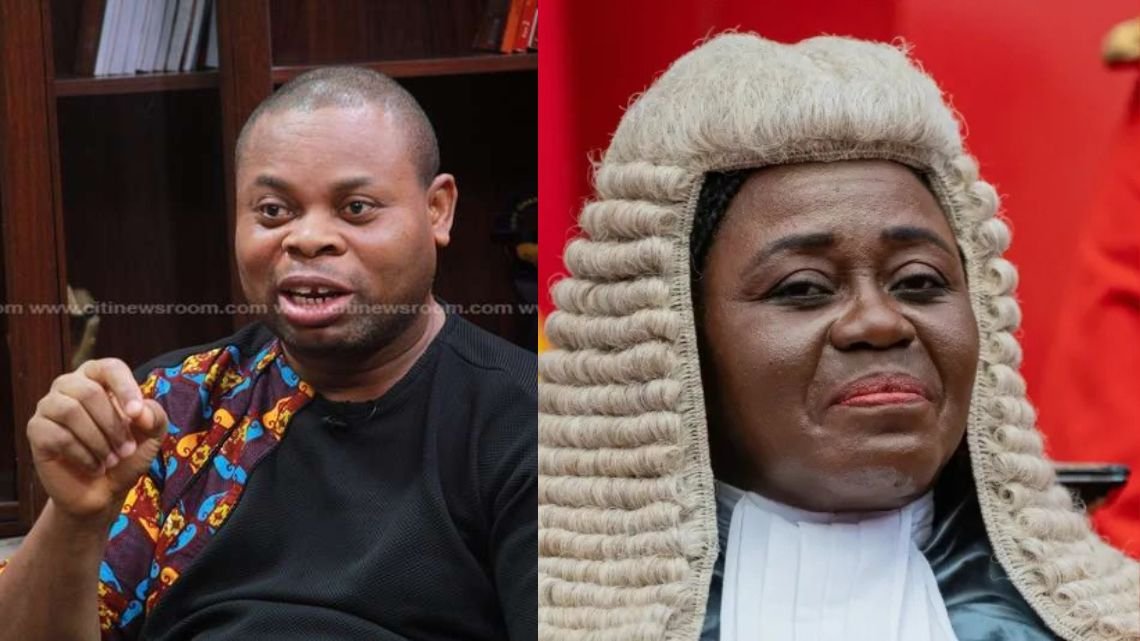President of IMANI Africa, Franklin Cudjoe, has urged the Chief Justice, Getrude Torkonoo, to “put her house in order.”
He made these remarks while expressing his discontent with recent court decisions and voicing sharp criticism of Ghana’s judiciary.
On his part, “Frankly speaking, my reading of the judiciary, unfortunately, in this particular case and a few of the cases, they have become like a playground for politicians; I think it’s a disappointment. I hope that they will redeem themselves quickly and the Chief Justice should put her house in order, ” he said during an appearance on Channel One TV’s The Big Issue on November 13, 2024.
His remarks came in response to the Supreme Court’s ruling that overturned Speaker Alban Bagbin’s declaration of four parliamentary seats as vacant.
Cudjoe accused the judiciary of exhibiting political bias, claiming it is increasingly being used as a tool for political agendas.
He expressed serious concerns about what he perceives as a lack of impartiality in judicial rulings and called on Chief Justice Gertrude Torkornoo to uphold the judiciary’s credibility and ensure fairness in future judgements.
“The real issue has to do with the way we do our politics in this part of our world.
Frankly speaking, it is not right to have almost 70% of the populace of the country say you are biassed. It is not fair. It’s not pretty at all, and I think I’m part of that 70%. Maybe I’m on top of the 70% right now,” he noted.
On Tuesday, November 12, the Supreme Court overturned Speaker of Parliament Alban Bagbin’s decision to declare four parliamentary seats vacant. The ruling came in response to a legal challenge filed by Majority Leader Alexander Afenyo-Markin.
In a detailed judgement delivered on Thursday, November 14, five of the justices sided with the Majority Leader, stating that a parliamentary seat can only be declared vacant if a Member of Parliament (MP) switches political parties while retaining their seat. The Court further clarified that the Speaker’s directive would not take effect during the current parliamentary term.
However, the ruling was not unanimous. Two justices dissented, arguing that the Supreme Court lacked the authority to adjudicate the matter. Their stance highlighted differing interpretations of the Court’s jurisdiction on such issues.

